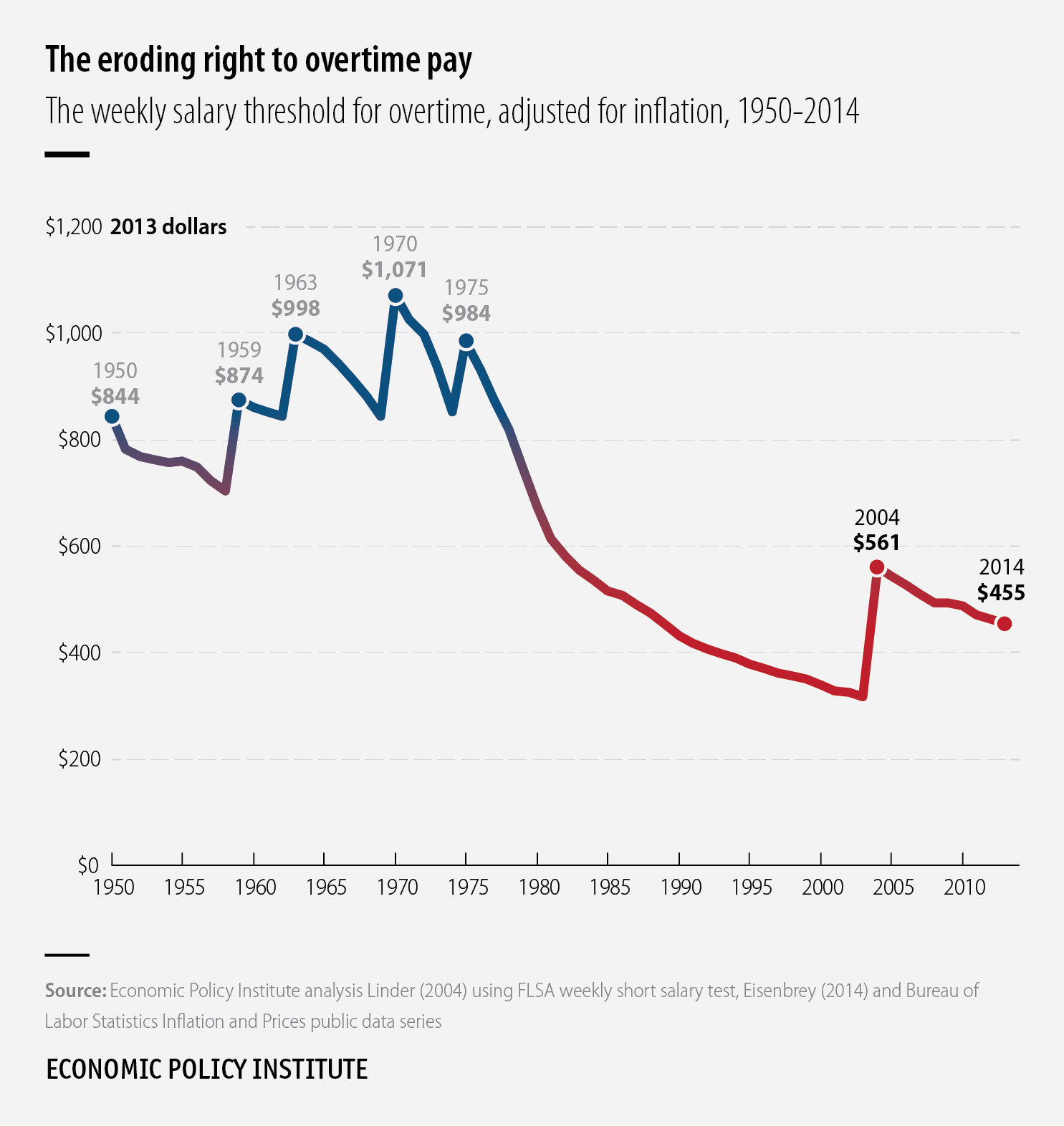President Obama has directed the U.S. Department of Labor to update the rules that govern overtime pay for white collar, salaried workers (executive, administrative, and professional employees). The most important part of the Department’s task will be to raise the salary threshold below which all workers are guaranteed overtime pay, a level that has been eroded so much by inflation and poor policy that it is now less than the poverty level for a family of four. Above the threshold, employees might or might not be exempt (denied the right to overtime pay) depending on the nature of their duties. Well-paid executives, administrators and professionals are exempt because they do not need the law’s overtime pay protections.
The salary threshold set by the U.S. Department of Labor was raised periodically to account for rising wages and inflation, as the figure shows. At its peak value, in 1970, the salary threshold was $1,071 a week in real 2013 dollars, or $55,692 a year. But the value of the threshold has eroded 57.5 percent to just $455 a week now, or $23,660 a year. This is less than the poverty threshold for a family of four. To keep the threshold consistent with its original purpose and prevent employers from denying overtime pay to millions of white collar workers who ought to receive it, the value of the overtime threshold should be restored to its 1975 value of $984 a week, equivalent to an annual salary of about $51,168 today.

